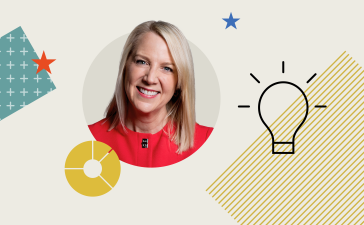The mayor of New York City has officially declared social media an ‘environmental toxin’ and ‘public health hazard’ in the same category as tobacco and guns.
In an advisory released Wednesday, Mayor Eric Adams criticized TikTok, YouTube and Facebook, blaming them for the mental health crisis plaguing tens of millions of children in the US — with rates of teen depression hitting their highest levels in a decade in the latest surveys.
In the declaration, city officials called on parents to impose ‘tech-free times’ for children and urged teens to consider turning off their notifications and tracking their emotions while online.
Evidence has been mounting for years that social media is detrimental to the mental health of children and teens, with its highly sophisticated algorithms exposing them to posts depicting unrealistic beauty and body standards and promoting self-harm content to users.
Earlier this year, Montana became the first US state to ban TikTok over these concerns and fears about its links to China, with lawmakers now pushing for the same order nationwide. Meta, which owns Facebook, is currently being sued by 33 states for ‘contributing to the youth mental health crisis’.

New York City mayor Eric Adams (pictured in December last year at City Hall) said social media was little better than guns and cigarettes

The above page from the advisory highlights advice to parents, including that there is no safe age at which children can start to use social media

Mayor Adams said online: ‘Social media companies are fueling a mental health crisis, especially for our young people. But we won’t let Big Tech endanger our kids.
‘New York City’s health commissioner is today issuing an advisory officially designating social media as an environmental toxin.’
He added: ‘Just as the past US Surgeon General did with tobacco and guns, we’re treating social media like other public health hazards and ensuring that tech companies take responsibility.’
He linked to the advisory from New York City health commissioner Dr Ashwin Vasan, which gave parents nine points on how to protect their children from social media.
This also included advice for parents to delay giving their children a smartphone with access to social media for as long as possible — and to talk to children about the dangers posed by too much time online.
Many top experts have been warning over the risks posed by social media for years.
US Surgeon General Dr Vivek Murphy said in May last year: ‘At this time, we do not yet have enough evidence to determine if social media is sufficiently safe for children.
‘[But] the current body of evidence indicates that while social media may have benefits for some children and adolescents, there are ample indicators that social media can also have a profound risk of harm to the mental health… of children and adolescents.’
Centers for Disease Control and Prevention surveys show six in 10 teenage girls were feeling ‘persistently sad or hopeless’ in 2021, the latest data available, marking the highest number recorded in a decade.
One in three female high schoolers also admitted to having seriously considered suicide over the previous year.
Among boys, 29 percent reported persistent feelings of sadness and 14 percent said they had seriously considered taking their own lives.
At the same time, surveys suggest upwards of 95 percent of teens aged 13 to 17 years old now use social media — with a third saying they are online ‘almost constantly’.
And while 13 is the minimum age for many social media platforms in America, many younger than that are finding their way onto the apps, with close to 40 percent of children aged eight to 12 using social media.
In New York City, 38 percent of high schoolers said they felt so sad or hopeless within the last year that they stopped engaging in their usual activities. Data also shows 77 percent of youngsters in the city spend three or more hours in front of screens every day, excluding time spent on schoolwork.
Many experts blame social media for the surge of mental health issues, highlighting studies linking overconsumption of the apps to depression and anxiety, poor sleep, low self-esteem — and could even affect how youngsters’ brains develop.

One study of 6,595 children aged 12 to 15 found adolescents who spent more than three hours a day on social media had double the risk of experiencing poor mental health outcomes, such as symptoms of depression and anxiety

The portion of young women experiencing persistent depression is at its highest level in about 10 years

While roughly a third of girls considered suicide, about 13 percent actually attempted it, compared to seven percent of males
One study of 6,595 children aged 12 to 15 found adolescents who spent more than three hours a day on social media had double the risk of experiencing poor mental health outcomes, such as depression or anxiety.
And a separate review of more than two dozen studies also found some social media platforms ‘show live depictions of self-harm acts like partial asphyxiation, leading to seizures, and cutting, leading to significant bleeding’.
In addition to social media, experts say there are other factors harming young people’s mental health including ‘isolation’ caused by the Covid pandemic and a reported rise in sexual violence.
In response to New York City’s warning, a spokesman for Meta — which owns Facebook — suggested other factors including limited healthcare access, academic pressure and the Covid pandemic were contributing to the mental health crisis among youths.
A spokesperson for YouTube pointed to ‘digital wellbeing’ features they had installed on their app, such as removing distressing content, and a TikTok spokesperson pointed to the fact they had added bedtime reminders and age restrictions.










